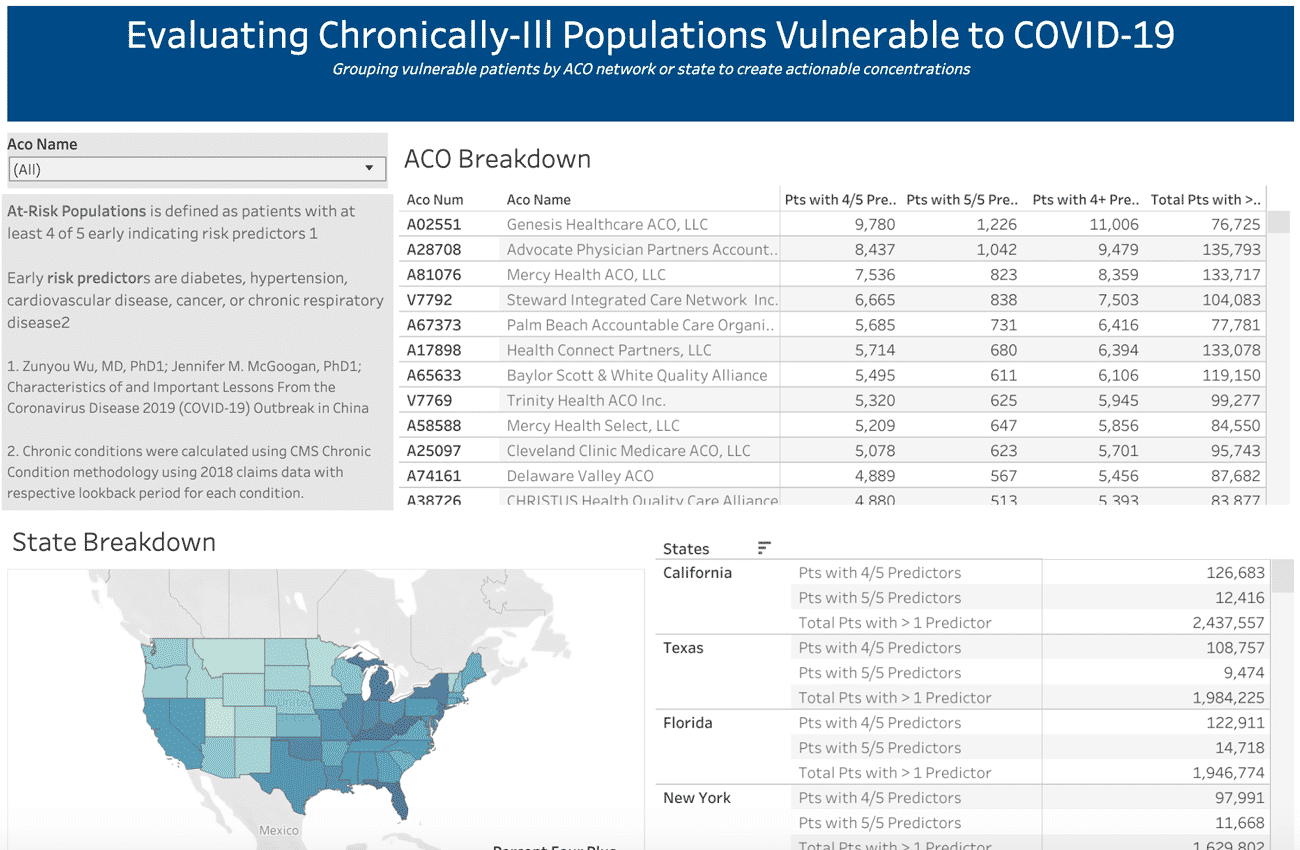We greatly appreciate our heroic frontline healthcare workers who are delivering much needed care during this public health emergency. To assist in the national response to the current pandemic, CareJourney is responding to a “call to action” issued by our nation’s Chief Technology Officer (a role formerly held by our President, Aneesh Chopra), focused on three digital priorities:
- Opening up more public data
- Updating public health reporting
- Opening up researcher access to COVID patient registries
We welcome community involvement in each of these areas:
1. Opening up more public data
Vice President Pence called on hospitals to share daily information for improved surveillance and public health planning in a March 29th memo. To assist hospitals in making more of this information publicly available, including testing availability and COVID-related announcements, we are collaborating with the leading search engines via schema.org, a standards community working to define a common set of structured metadata for websites. Microsoft and Google jointly published a COVID-related update, including instructions for “SpecialAnnouncement” and “CovidTestingFacility” tags. We anticipate forthcoming instructions on COVID patient summary data. Please connect with your CareJourney member services representative should you wish to learn more and participate.
In addition, CareJourney recently published a “heat map” to identify populations vulnerable to COVID-19 based on early findings1 from Wuhan on the clinical characteristics of the most vulnerable population (aged 65+, residing in a long-term care or nursing home, and suffering from any of the following chronic conditions: chronic lung disease, diabetes mellitus, chronic kidney disease, heart and vascular diseases and cancer). We’ve modeled a majority of these characteristics by ACO using CMS fee-for-service data from 2018 as presented below. Fill out the form on the right to access the report.

We at CareJourney are ready and willing to help our members utilize our platform for any COVID-19 response activities. For those members who use our Population Insights tool built on CCLF files, the patient and claims profiles in the tool will allow you to filter patient lists on a variety of data including chronic conditions, high need patient segment, and whether patients recently received care in an acute or post-acute setting. For our members who use Network Advantage built off our national Medicare FFS claims dataset, you are able to identify providers and practice groups whose patients have a high prevalence of chronic conditions or are deemed high need using claims. As always, your Member Services point of contact can help answer any questions you may have.
2. Updating public health reporting
The CDC’s March 26th Morbidity & Mortality Weekly Report shared the first public insights on the clinical outcomes of the initial 4,226 COVID-19 cases. While the headline message involved case fatality rates, the footnotes outlining data gaps caught our attention. After a decade of digitizing the healthcare delivery system, this report noted that a shockingly high number of the Person Under Investigation and Case Report Forms lacked data on hospitalization status (36%), ICU admission (53%), death (47%), and age (9%).
Rush University Medical Center designed a FHIR Questionnaire to automate some of the manual data capture, as did Palantir, a contractor involved in the government’s COVID response, captured in this recent blog.
We are further exploring how to update existing data feeds hospitals submit for public health “syndromic surveillance” reporting since the second stage of the “meaningful use” program. Be sure to let your CareJourney representative know if you wish to learn more.
3. Opening up researcher access to COVID patient registries
CareJourney participates in the Robert Wood Johnson Foundation’s Health Data for Action program with the goal of matching non-commercial researchers to data sets that inform healthcare performance. This year, RWJF is exploring a more COVID-focused research collaborative to develop standardized COVID patient registries across a “sentinel” network of health systems willing to open up non-commercial researcher access.
We’ve organized two webinars to gauge industry interest and priorities, summarized in this slide deck.
We understand this is a fast-moving emergency, and would welcome your participation in any or all of the items outlined. Should you have the time, we introduced many of these ideas during an all-member webinar on March 18th.
Please reach out to your CareJourney team member if you are interested in learning more, want to join in the collaboratives discussed, or need assistance in analyzing your own data to identify high-risk populations.
- Wu, Z., & Mcgoogan, J. M. (2020). Characteristics of and Important Lessons From the Coronavirus Disease 2019 (COVID-19) Outbreak in China. Jama. doi: 10.1001/jama.2020.2648
